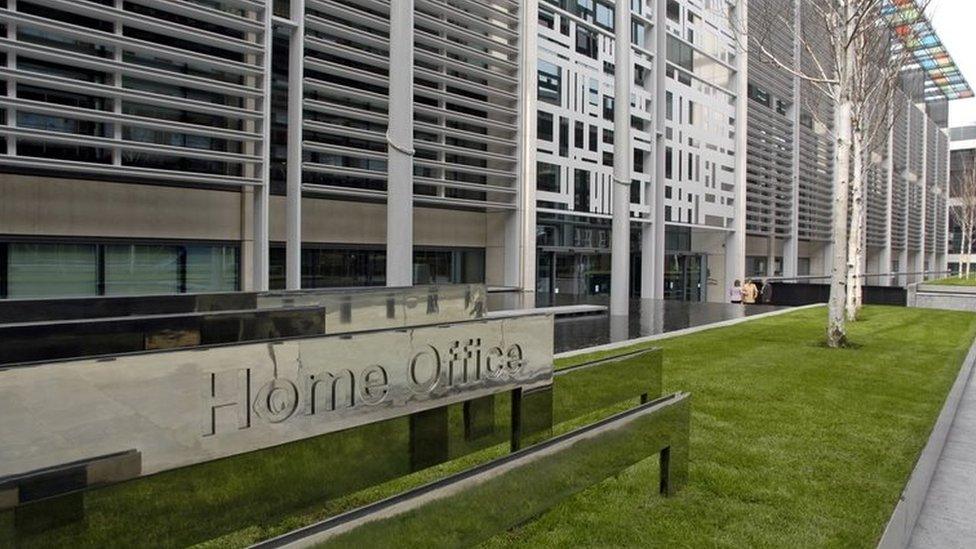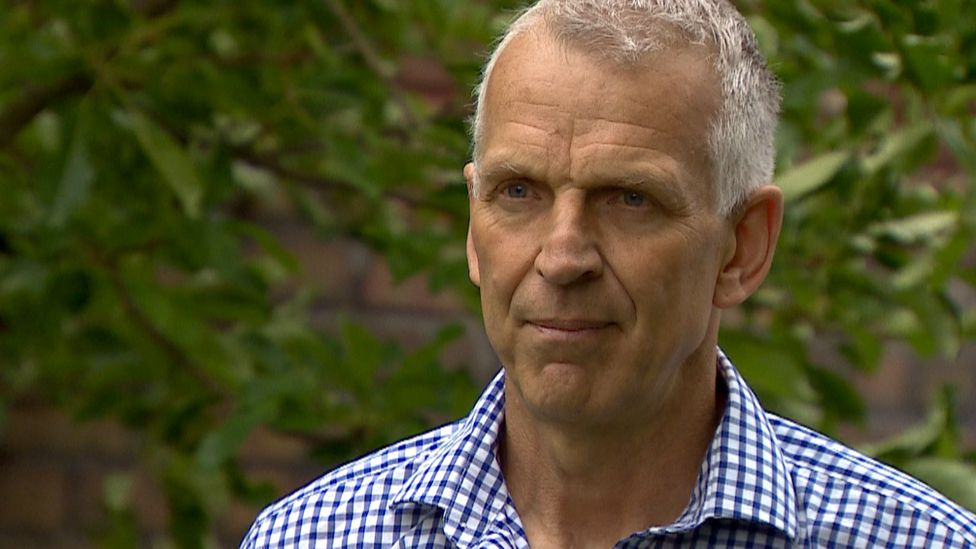Former asylum seeker on hunger strike over his age
- Published

The Home Office has been urged to take action
A man who came to the UK from Gaza as a teenage asylum seeker says he is on hunger strike in an attempt to persuade officials to recognise his real age.
The man, who has learning difficulties and was diagnosed with PTSD, is ill in Southmead Hospital in Bristol after refusing food for more than 90 days.
Following a UK government assessment a decade ago he was declared to be five years older than he claimed to be.
He says his date of birth is part of his identity and must be corrected.
The man, who wishes to remain anonymous, eventually settled in the UK having fled Gaza, where he was orphaned and tortured.
Home Office refusal
An age assessment was carried out in the UK because he arrived without his original birth certificate.
The assessment concluded he was 19, but he has always maintained he was 14 at the time.
The man was granted indefinite leave to remain in the UK last year and has asked for his records to accurately reflect his real birth date, but this was refused by the Home Office.
He began a hunger strike on 6 March.
The man's foster mother, who wishes only to be identified as Patsy, said there was "no doubt" he was a 14-year-old when he first came to live with the family.

Tom Hore from Bristol Mind said it "made no difference" to the Home Office to change the man's date of birth
"There is a big difference between a 14-year-old and a 19-year-old," she said.
"He liked cartoons and children's programmes, he was stroppy at times, he didn't keep his bedroom tidy and needed support with his organisational skills.
"Just typical teenage behaviour."
Loss of identity
The mental health charity Mind has written to the Home Office to ask for urgent action.
In the letter, Paul Farmer, chief executive of Mind, said: "His date of birth is part of his identity as it is with all of us."
"But that sense of identity is overlaid with the most traumatic of experiences, loss of country, parents and being subject to torture and multiple mental disorders.
"Any further loss of identity such as the day you were born can therefore become catastrophic to the sense of self."
Tom Hore, director at Bristol Mind, said it "made no difference" to the Home Office to change his date of birth.
"If they would, it would give him back a vital part of his identity and stop the unnecessary distress it causes him.
"In a week when people across the globe are protesting about the value of people's lives, for the sake of just a few digits, a man's life could be saved."
A Home Office spokesperson said: "Whilst we do not routinely comment on individual cases, we handle complex cases as sensitively as possible.
"If new information or evidence comes to light we remain fully open to reviewing previous decisions on someone's age."